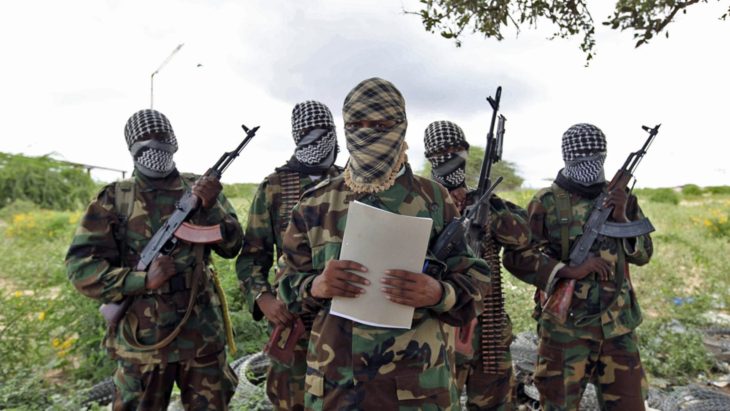NAIROBI,Kenya, July 29 – Kenya has borne the brunt of terror attacks for decades at the hands of faceless global criminal elements that have threatened the country’s peace, security and stability under the guise of a misguided political or religious dogma which they have sought to forcefully impose and institute on people.
One of the country’s first recorded instances of alleged terror attacks was back in 1975, when a fairly young independent Kenya saw at least 27 people killed and 100 others injured at the OTC bus terminus in the country’s capital Nairobi.
Government authorities revealed that no group claimed responsibility for the incident.
Just five years later, a known international terrorist with links in Jeddah, Saudi Arabia detonated a bomb at the Fairmont Norfolk Hotel in Nairobi killing at least 20 people. The incident, thrust Kenya to the global stage amidst heightened efforts to combat militant groups domiciled across the African continent and in particular East Africa.
On August 7, 1998, perhaps the worst terror attack in Kenyan history, saw Al -Qaeda linked operatives, bomb the US embassy building in the Nairobi’s central business district, killing more than 200 people.
In what appeared to be part of a simultaneous attack, the US embassy in Neighboring Tanzania was also bombed with Al -Qaeda leader (now deceased) Osama Bin Laden claiming responsibility for the attack saying that his terror organization had commenced Jihad, a holy war against its enemies.
From there on, as Kenya strengthened its intelligence and security sector to avert future attacks, it was yet again across the early years of the new millennium faced with even bigger threats, from the 2002 Kikambala Hotel bombing, the Westgate Mall Attack in 2013, the Mpeketoni attacks in 2014, a series of bombings across Kenya’s North Eastern Counties including the attack on the Garissa University College in 2015, the 2019 Dust attack among other incidents.
During the last decade back in 2011 on October 6, Kenya sought to grab the enemy by the horn and entered Somalia in a bid to confront the enemy head on in a mission to protect and secure its territorial integrity.
Later on in 2012, the Kenya Defence Forces (KDF) re-hated itself and joined the Africa Union Mission in Somalia (AMISOM) in a continental military approach with the backing of the United Nations to restore peace in the Horn of Africa Nation.
Though significant progress has been made, with the Al-Shaabab operatives being degraded, the Al-Qaeda linked organization still remains a viable threat to peace across the region.
In a bid to once and for all address the security conundrum facing the region and the world, Kenya has on several occasions attempted in vain to have the Al-Shabaab designated as a terror group alongside others such the; Al-Qaeda, Taliban and ISIL under the United Nations Security Council Resolution 1276.
The Security Council can take several actions, which may not involve use of armed forces, including designating groups and individuals, in order to maintain or restore international peace and security, under Chapter VII of the UN Charter.
The Security Council however in August 28, 2019, rejected Kenya’s request to designate Al Shabaab as a terrorist organization.
Several international organizations such as US humanitarian agencies and envoys, argued that the move would criminalizes humanitarian aid.
“There would be a chilling effect in the humanitarian response,” said Mark Yarnell, senior advocate and U.N. liaison for Refugees International. “Aid organizations would be concerned that if they carry out programs as they are doing now, without the humanitarian exemption, their work could essentially be criminalized.”
During an interview back in 2019, Kenya’s ambassador and permanent representative to the United Nations Martin Kimani said, it was time the world took seriously the threat of Al-Shabaab.
“we must make sure that the humanitarian aid that goes to Somalis who need help is not being taxed and utilized by the Al-Shabaab and for that reason there is a big role for the international community and the countries in the United Nations security council to stand up and enable us to fight terrorism financing in Somalia and give AMISOM the tools that they need. “ said Ambassador Kimani.
Other groups further argued that similar proclamations in countries such as Afghanistan that has for decades battled the Taliban, have exposed innocent civilians to untold suffering particular as they sought to obtain food aid from humanitarian groups.
Several international groups have further stated that arbitrary procedures for terrorist black-listing do not meet the due process requirements of fair trial and have affected a number of rights of targeted individuals including their right to privacy, the right to property, the right of association or the right to travel or freedom of movement.
During a meeting with the European Union High Representative for Foreign Affairs and Security Policy, Federica Mogherini, Kenya’s Defence Cabinet Secretary Dr. Monica Juma argued that it was imperative to list Al-Shabaab as a terror organization amidst the threat the continue to pose across the region.
Kenya’s ambassador and permanent representative to the United Nations Martin Kimani continues to advocate for this move to be actualized on the global stage.
Want to send us a story? Contact Shahidi News Tel: +254115512797 (Mobile & WhatsApp)


